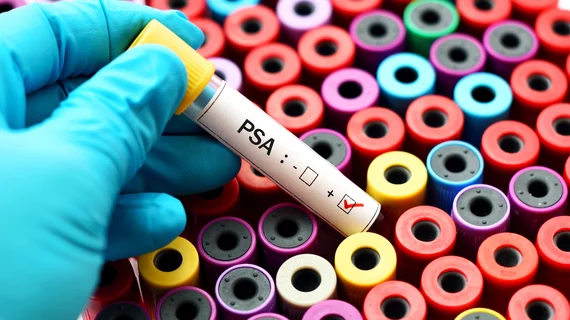PET/CT helps track response, progression in patients with difficult-to-treat prostate cancer
Pairing PET/CT imaging with prostate-specific antigen testing may help gauge treatment response and disease progression in men with metastatic castration-resistant prostate cancer, according to new information presented during the American Society of Clinical Oncology 2020 virtual meeting.
The study, reported on by Renal & Urology News, had 123 men with the disease undergo serial PSA testing and C-11 choline PET/CT scans every 3 to 6 months.
About 40% of patients who received second-generation hormone therapy post-taxane-based chemotherapy experienced imaging-based disease progression, despite stable or falling PSA levels.
Additionally, 60.4% of patients who received one of two therapeutic drugs (abiraterone or enzalutamide) showed a parallel rise in PSA levels at the time of PET/CT-based progression, compared to the 39.6% with stable or declining levels.
Study author Jamal Alamiri, of Mayo Clinic in Rochester, Minnesota, hypothesized that imaging-based progression can happen despite stable or declining PSA levels after prostate cancer cells gain treatment-induced mechanisms resistant to therapies. It is “unknown” whether this explains the findings in their own research, he told the news outlet.
Read more of the study results from Renal & Urology News below.

